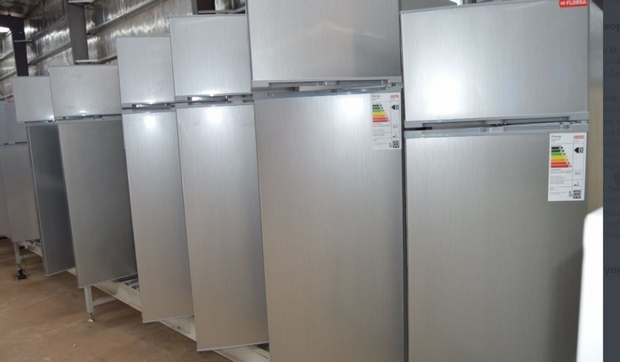Rwanda banks on new financing to help restore Ozone layer

Rwanda is considering a new mechanism to ease access to affordable and eco-friendly fridges and air conditioners that are not harmful to the Earth’s ozone layer and causing climate change.
According to information shared by Rwanda Environment Management Authority, there is a scheme dubbed “A green on-wage financing mechanism” to make energy-efficient and climate-friendly refrigerators and ACs more affordable.
The scheme is under Rwanda Cooling Finance Initiative (R-COOL FI) to promote energy-efficient and climate-friendly cooling and recycling of existing inefficient systems.
The project aims to unlock $4 million in financing to support the purchase of 12,500 energy-efficient and climate-friendly cooling products in Rwanda by 2024.
Martine Uwera, Rwanda’s Focal Point of Montreal Protocol, said the initiative which is part of implementing Kigali Amendment can potentially help overcome key barriers, including the burden of upfront investment and the need for collaterals.
The program incentivises households and micro-entrepreneurs to return end-of-life cooling equipment and acquire certified higher-efficiency cooling appliances in exchange through a dedicated take-back scheme in partnership with interested vendors and an e-waste management company.
By 2020, Rwanda had drastically reduced, by 54%, the importation of gases known as ‘hydro- chlorofluorocarbons (HCFCs)’ that deplete the ozone layer as part of implementing the Montreal Protocols. HCFC imports also decreased from 4.1 tons in 2010 to 1.89 tons in 2020, which Rwanda seeks to phase out by 2030.
“The importers have to import eco-friendly gases used in the equipment. We want to improve the financing mechanism so that consumers buy this equipment and also pay through their salary or income via banks,” Martine Uwera said.
According to environmentalists, there is a need for increased uptake of ensuring energy efficiency of refrigeration and air conditioning equipment to reduce greenhouse gas emissions that are harmful to Ozone layer and causing climate change, according to environmentalists.
The call to increase uptake and investments in energy efficiency of refrigeration and air conditioning equipment follows a new UN-backed assessment report which suggests that Earth’s ozone layer could recover completely within decades if more efforts are invested in phasing out ozone-depleting chemicals across the world.
Recent studies indicate that there are an estimated over 88,000 refrigerators in Rwanda, of which an estimated 64,000 are classified as old and that this wastes electricity worth approximately Rwf4 billion annually.
